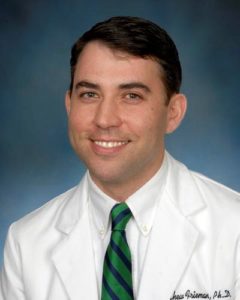GVN Center and Member Spotlight
 Matthew Frieman
Matthew Frieman
Associate Professor, The Department of Microbiology and Immunology; Associate Member of The Center for Vaccine Development and Global Health
University of Maryland School of Medicine, USA
What are you and your institution currently working on regarding SARS-CoV-2? (One paragraph)
My lab is currently working on developing therapeutics against SARS-CoV-2. We are developing novel therapeutics in my lab as well as partnering with several pharmaceutical companies to identify, validate and test drugs, antibodies and vaccines that inhibit SARS-CoV-2, as well as SARS-CoV-1 and MERS-CoV. The key therapeutics with the most potential will be ones that target the coronaviruses we know about now and also the ones that we don’t know even exist yet but will emerge in the future.
Your work approaches demonstrate a great variety: SARS-CoV-2 reverse infectious clones, Novavax vaccine work, rapid neutralizing antibody assays, mammalian plasmid expression of SARS, MERS and CoV-2, collaboration with Regeneron on monoclonal antibody isolation and validation, etcetera. What is your priority research project for SARS-CoV-2?
There are many priorities in the lab as we push through this outbreak. We are focusing on the development of high throughput assays for drugs and antibodies that can rapidly identify hits in the BSL3 with maximum workflow. Important to our screening is the ability to test our findings in vivo, and we are developing and characterizing several different mouse models to determine which is best for therapeutics testing.
Biosketch
My overall research goal is to create therapeutic interventions for viruses of public health concern by developing a detailed understanding of how the viruses interact with the host. My research has focused on the recently emerged and highly pathogenic coronaviruses: Severe Acute Respiratory Syndrome Coronavirus (SARS-CoV), Middle East Respiratory Syndrome Coronavirus (MERS-CoV) and Severe Acute Respiratory Syndrome Coronavirus-2 (SARS-CoV-2/COVID19), as well as Influenza virus. The coronaviruses cause severe lung disease, are highly lethal and yet there are no FDA approved therapeutics that target them.
Important to understanding these diseases has been our development, characterization and utilization of mouse models of disease for SARS-CoV, MERS-CoV and SARS-CoV-2. The rapid and successful development of these models has allowed us to unravel the cellular and physiological basis for disease of these viruses. In addition, the creation of these models has allowed for therapeutic development of vaccines, antibodies, small molecules, novel and repurposed drugs and other therapeutics. Critical to my research is the synergy of our in vitro and in vivo models of disease that allow us deep understandings of how these viruses work.
Work in the lab includes the identification of host factors that effect viral replication and the use of novel yeast screening techniques to identify small molecules that inhibit those proteins for use as therapeutics. In addition, we are identifying novel and repurposed drugs, antibodies and vaccines for Influenza virus, SARS-CoV, MERS-CoV and SARS-CoV-2 inhibition. Combining our in vitro and in vivo systems identifies key proteins and nodes of regulation for further therapeutic targeting.
